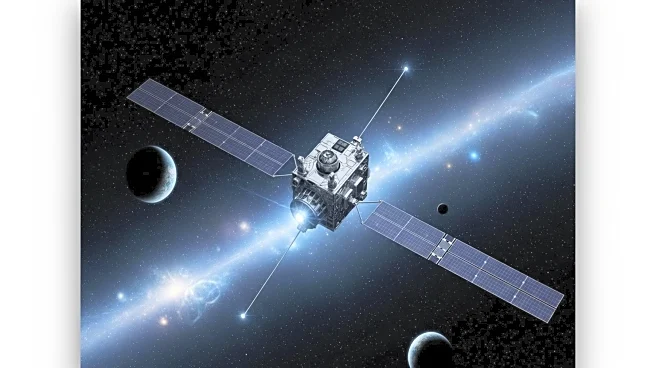What is the story about?
What's Happening?
SpaceX has successfully launched three space weather probes aboard a Falcon 9 rocket from NASA's Kennedy Space Center in Florida. The primary payload, NASA's Interstellar Mapping and Acceleration Probe (IMAP), is designed to monitor solar activity and study interstellar dust and solar wind. The mission aims to map the outer boundary of the heliosphere, a vast bubble around the solar system influenced by the sun's solar wind and magnetic field. Alongside IMAP, NASA's Carruthers Geocorona Observatory and NOAA's Space Weather Follow-on spacecraft were also launched. These missions will investigate Earth's exosphere and track solar storms, respectively, providing crucial data for understanding space weather impacts on Earth.
Why It's Important?
The launch of these probes is significant for advancing scientific understanding of space weather and its effects on Earth. Space weather can pose risks to satellites, astronauts, and infrastructure such as power grids. By mapping the heliosphere and tracking solar storms, these missions will enhance predictive capabilities, potentially safeguarding technology and human activities in space. The data collected will also support NASA's Artemis program, which aims to establish a sustained human presence on the moon, by providing radiation warnings to protect astronauts. This initiative underscores the importance of space weather research in ensuring the safety and success of future space exploration missions.
What's Next?
Following the successful launch, the Falcon 9's upper stage will deploy IMAP into an interplanetary transfer orbit, with SWFO-L1 and CGO following suit. The probes will begin their respective missions at the sun-Earth Lagrange Point 1, a stable gravitational spot. The data collected will be analyzed to improve space weather forecasting and inform future space exploration strategies. As the Artemis program progresses, the insights gained from these missions will be crucial in planning safe lunar and interplanetary missions, potentially influencing policy decisions regarding space travel and exploration.
















